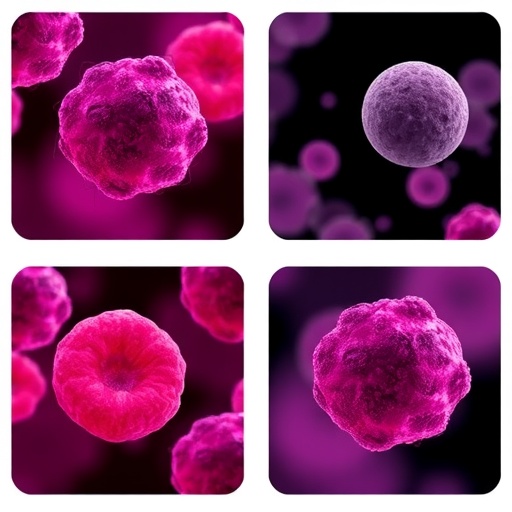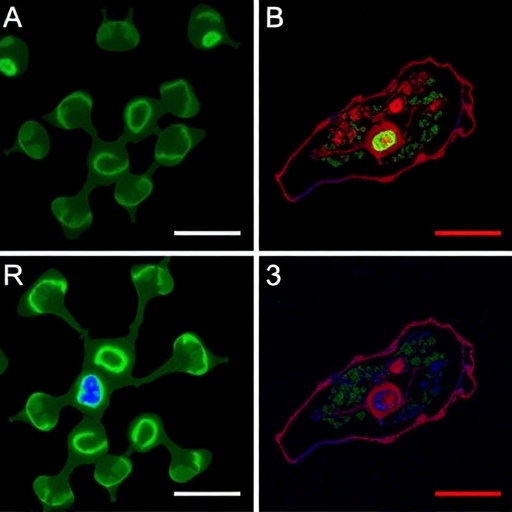Prof. Dr. Ellen Fritsche, a toxicologist from the Leibniz Research Institute for Environmental Medicine at Heinrich Heine University Düsseldorf, and PD Dr. Dr. Hamid Reza Noori, a mathematician, physicist and medical scientist from the Max Planck Institute for Biological Cybernetics in Tübingen, are to be presented with the Ursula M. Händel Animal Welfare Prize by the Deutsche Forschungsgemeinschaft (DFG, German Research Foundation). The prize which is worth €50,000 each is being presented for the seventh time. It is awarded to researchers who improve animal welfare in research in line with the principles of the 3Rs: Replacement, Refinement and Reduction.
The winners were chosen from among 16 nominees. So impressive were the candidates that the jury decided that this year's prize should be shared. Fritsche is to be awarded the prize for the development of a test system for chemical effects, which has the potential to fully replace animal experiments currently required by law for toxicological testing. Noori is being recognised for his use of big data in neurobiology, which has the potential to significantly reduce the use of animal experimentation.
"As a research funding organisation, the DFG has a natural and fundamental interest in the consistent implementation and refinement of the 3Rs. The quality of research results is directly linked to the responsible treatment of research animals," said DFG Vice President Prof. Dr. Katja Becker, who will present the Ursula M. Händel Animal Welfare Prize on 23 November 2018 in Berlin. The prize will be awarded in conjunction with the opening of the new research centre Charité 3R – Replace, Reduce and Refine, in the Lecture Hall Ruin of the Berlin Museum of Medical History at the Charité.
In her research Prof. Dr. Ellen Fritsche uses neurospheres, organ-like cell cultures which can be used to test the toxicity of a substance to brain development. This cell culture method has the potential to replace animal experimentation and identify chemicals that cause damage during the development of the nervous system. Because the neurospheres are grown from human stem cells, the results of the neurotoxicity studies allow a more accurate assessment of the risks of chemical substances to humans than is possible with animal studies, where the results are not always fully transferable to humans. Fritsche and her working group intend to use the prize money to further develop their neurosphere models in partnership with the European Food Safety Authority (EFSA) to enable reliable characterisation of the effects of neurotoxic substances and recognition of the test system, as a replacement for the currently required animal experiments.
PD Dr. Dr. Hamid Reza Noori uses new approaches in mathematics, data mining and machine learning to evaluate the wealth of data published in recent decades from neurobiological research on rats. Through the complex analysis of existing data, Noori was able to identify the biochemical circuits in the rat brain which are essential to information processing – without conducting a single animal experiment. Noori is now making the data from what currently amounts to nearly 150,000 rats available in two open access databases, which researchers all over the world can use to address research questions relating to neuroanatomy and neuropharmacology. The databases will help scientists to answer research questions in silico – by analysing existing data – or to plan new experiments more stringently. The use of big data in preclinical neuroscience offers considerable potential for animal welfare in research.
The Ursula M. Händel Animal Welfare Prize goes back to the initiative of the founder of that name. A resident of Düsseldorf, Ursula M. Händel (1915-2011) championed many forms of animal welfare over several decades. For example, she founded the "Bonn Animal Welfare Legislation Working Group" whose work was incorporated into amendments to the German Animal Welfare Act. Dedicated to animal welfare in science and research, Händel provided the DFG with the financial backing for the animal welfare prize. The prize is awarded every two years.
###
Further information
Media contact:
DFG Press and Public Relations, Tel. +49 228 885-2109, [email protected]
For more details about the Prize, its founder Ursula M. Händel and the prizewinners, please go to http://www.dfg.de/en/funded_projects/prizewinners/haendel_prize
DFG programme contact:
Dr. Sonja Ihle, Life Sciences 1, Tel. +49 228 885-2362, [email protected]
Media Contact
Benedikt Bastong
[email protected]
49-228-885-2376
http://www.dfg.de




